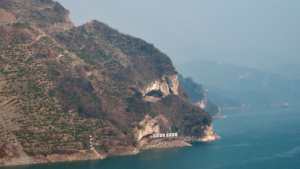Russian President Vladimir Putin completed a flying one-day visit to the UAE and Saudi Arabia yesterday. He cut a confident figure as he was welcomed by both countries as a “dear friend”.
Putin’s foreign outreach is notable for a few reasons:
- It’s his first trip beyond Russia’s traditional allies (China, Iran, and Central Asian countries) since the start of the Russo-Ukraine war and his first trip to the Middle East since 2019.
- It shows he wants to coordinate more closely with OPEC+ members to push oil prices higher at a time when analysts are wondering whether the cartel is losing its power.
- Plus, he’ll host Iranian President Ebrahim Raisi at the Kremlin today.
But it’s the broader context that’s most intriguing here.
Stay on top of your world from inside your inbox.
Subscribe for free today and receive way much more insights.
Trusted by 134,000+ subscribers
No spam. No noise. Unsubscribe any time.
As Putin was receiving a lavish welcome an hour down the road from COP28, Bloomberg published an investigation that found Russia’s monthly income from oil exports is higher now than it was before it invaded Ukraine in February 2022.
That’s despite the US$60 per barrel price cap on Russian oil imposed by G7 countries on 5 December 2022 that was supposed to kneecap Russian revenues. Capping the price Russia can charge for its oil was supposed to make it harder for it to fund its war effort in Ukraine.
In reality, Russia has mostly adapted to the sanctions:
- Instead of selling its oil to the EU, Moscow now ships most of it to China and India, and
- Instead of transporting it via established shipping merchants out of London or Geneva, a ‘shadow fleet’ of rusting oil tankers operated by opaque entities headquartered in places like Estonia, Hong Kong, and the UAE now takes Russian oil to the world.
Interestingly, Greek companies are also helping. According to the Bloomberg report, Greek-owned vessels shipped more Russian oil in 2023 than any other country.
Of course, none of this is to say sanctions are totally failing. Russia has lost roughly $36B in oil export revenue over the past year, and the rouble has fallen 40% against the USD since sanctions were imposed.
But, given Russia’s net oil revenues have increased every month since June, it’s no wonder Putin seemed so confident in the Gulf yesterday.
INTRIGUE’S TAKE
Was it hubristic of the G7 and the EU to believe it could cripple an economy as large as Russia’s with a stroke of a pen? Perhaps – where there’s a will, there’s a way, and Putin’s political (and therefore personal) survival depends on getting Russian oil to market.
Looking to next year,there are more reasons for Putin to be optimistic. For example, just how aggressively will the Biden administration attack Russian oil flows if it means risking pushing up global fuel prices in a presidential election year?
All this is bad news for Ukraine as we approach the second anniversary of the war with no end in sight.
Also worth noting:
- The Economist published an interesting look into how Putin is remaking Russia as a state perpetually at war.
- The US Treasury sent letters to major Greek shipping lines warning them they would face sanctions if they continued to help Russia defy the oil price cap.









